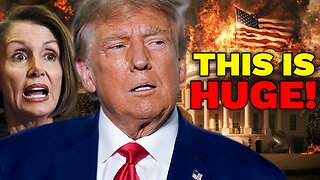Decoding 1984: Orwell's Dystopian Nightmare
"1984" by George Orwell is a dystopian novel that serves as a chilling warning about the dangers of totalitarianism, surveillance, and the manipulation of truth. Set in the fictional superstate of Oceania, the story revolves around Winston Smith, a disillusioned Party member who seeks freedom and individuality in a world where conformity and obedience are strictly enforced. Here's a summary of the key themes and plot elements in "1984" in 500 words:
Totalitarian Regime:
The novel is set in a bleak future where the Party, led by Big Brother, exercises absolute control over Oceania. The Party manipulates language, history, and reality itself to maintain power and suppress dissent. The populace is subjected to constant surveillance, propaganda, and brutal punishment for any form of thoughtcrime.
Winston Smith:
Winston Smith, the protagonist, is a Party member who secretly harbors dissenting thoughts against the Party's oppressive rule. He begins keeping a forbidden diary as an act of rebellion, symbolizing his desire for individuality and resistance to the Party's control.
Julia:
Winston's life takes a significant turn when he meets Julia, a fellow Party member who shares his rebellious inclinations. Their love affair is a secret act of defiance against the Party's prohibition on personal relationships. Together, they hope to find happiness and freedom.
Big Brother:
Big Brother is the enigmatic and omnipresent leader of the Party. Although it is unclear whether Big Brother is a real person or a propaganda creation, his image is used to instill fear, loyalty, and conformity among the citizens of Oceania. The Party's slogan, "War is Peace, Freedom is Slavery, Ignorance is Strength," reflects its manipulation of language and reality.
The Thought Police:
The Thought Police are a secret police force tasked with monitoring and eliminating any form of dissent or independent thought. They employ surveillance, informants, and psychological manipulation to control the population. The fear of being arrested by the Thought Police prevents individuals from openly rebelling against the Party.
Room 101:
Room 101 is a place of ultimate terror and torture within the Ministry of Love. It is where individuals are subjected to their deepest fears and phobias, used as a means to break their spirit and loyalty to the Party. The threat of Room 101 is a powerful tool of psychological control.
The Brotherhood:
Winston and Julia become involved with the Brotherhood, an underground resistance movement supposedly led by the enigmatic figure, Emmanuel Goldstein. The Brotherhood seeks to overthrow the Party and restore individual freedom, but its existence is shrouded in mystery.
Betrayal and Reeducation:
Winston and Julia's affair is discovered, leading to their arrest and imprisonment. Winston is subjected to brutal torture and reeducation by O'Brien, a high-ranking Party member who seeks to break his rebellious spirit and force him to love Big Brother. Winston eventually betrays Julia, symbolizing the complete destruction of his individuality and resistance.
The Power of Totalitarianism:
The novel concludes with Winston's complete submission to the Party. He comes to love Big Brother and fully embraces the Party's ideology. The novel's bleak ending underscores the power of totalitarianism to destroy individuality and manipulate reality.
Themes and Warnings:
"1984" explores themes of totalitarianism, surveillance, propaganda, and the manipulation of truth. It serves as a powerful warning about the dangers of authoritarianism and the erosion of individual freedom and autonomy in the face of oppressive regimes.
In summary, "1984" is a thought-provoking and haunting exploration of a dystopian world where the Party's control over language, thought, and reality is absolute. Winston's journey from rebellion to submission highlights the devastating impact of totalitarianism on the human spirit and the enduring importance of preserving individuality and truth. The novel's message remains relevant and serves as a cautionary tale against the erosion of freedom and the dangers of authoritarianism.
-
 1:32
1:32
Brownells, Inc.
17 hours agoQuick Tip: Is It OK to Store Magazines Loaded?
13.7K9 -
 1:58:59
1:58:59
The Shannon Joy Show
16 hours ago🔥 Exclusive with Catherine Austin Fitts: 'Liberty Warriors Must Shift Politics to the Power Space!'
21.3K10 -
 56:09
56:09
Mark Kaye
22 hours agoCRASH! Kamala Harris Poll Collapse. Campaign to Call It Quits?
25.6K43 -
 5:54:58
5:54:58
SNEAKO
11 hours agoSNEAKO X ADIN ROSS
104K38 -
 3:57:31
3:57:31
Fresh and Fit
11 hours agoAfter Hours w/ Girls
142K112 -
 35:13
35:13
Power Slap
3 days agoPower Slap: Road to the Title - Season 3 Episode 10 - Violence and Destruction
613K58 -
 1:25:09
1:25:09
Kim Iversen
18 hours agoWhat Do Nazis And Globalists Have In Common? A Lot | with David A. Hughes
124K223 -
 28:54
28:54
Stephen Gardner
14 hours ago🔴BREAKING: NEW BOMBSHELL details VINDICATE Trump!!
83.1K195 -
 55:08
55:08
Flyover Conservatives
1 day agoAmerica Under Attack: Urgent Invasion Alert and Treason Exposed - JJ Carrell | FOC Show
90.9K85 -
 54:52
54:52
LFA TV
1 day agoBiden Official Calls for Trump to Be ‘Extinguished for Good’ | Trumpet Daily 9.25.24 9PM EST
67K63